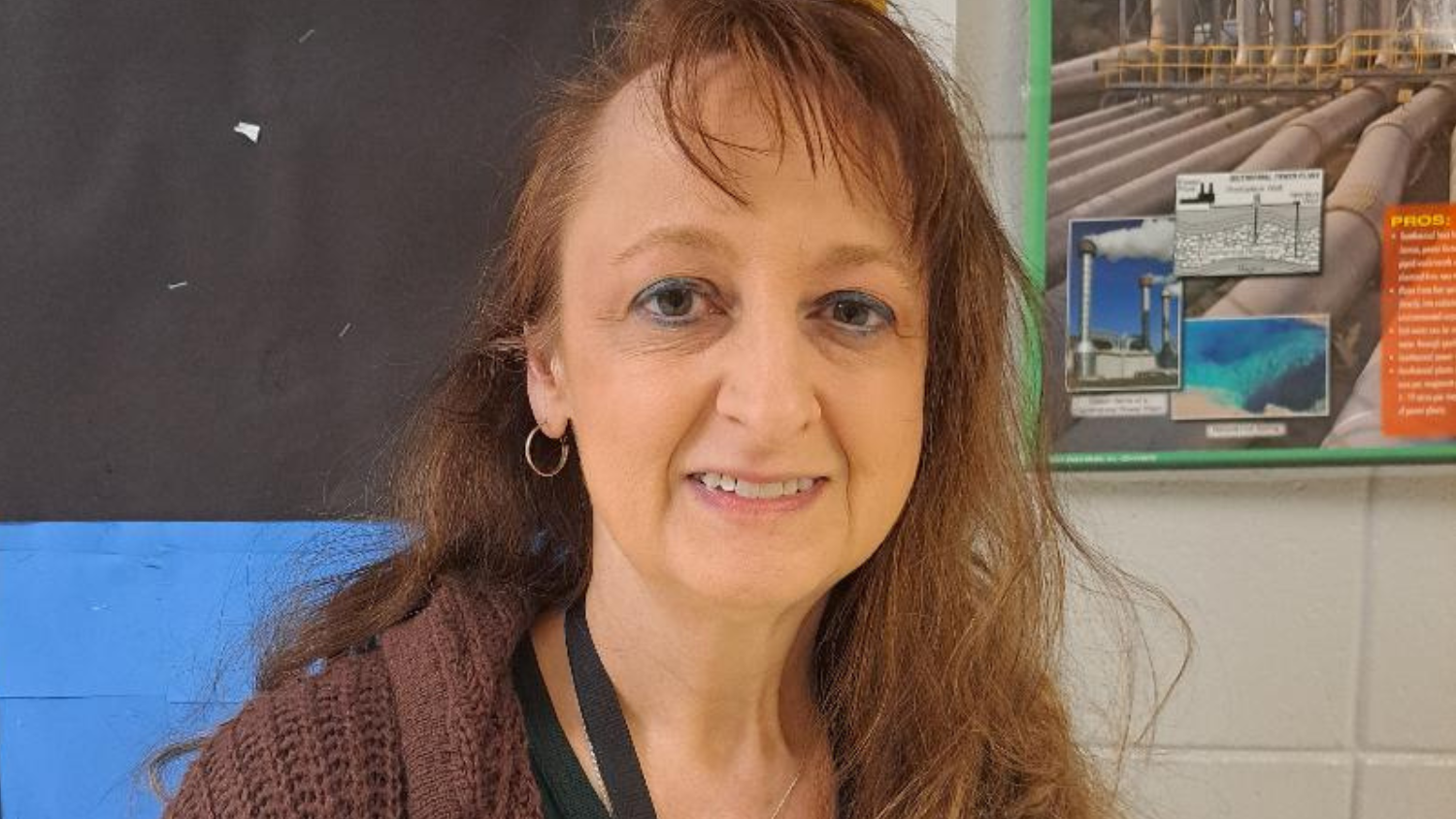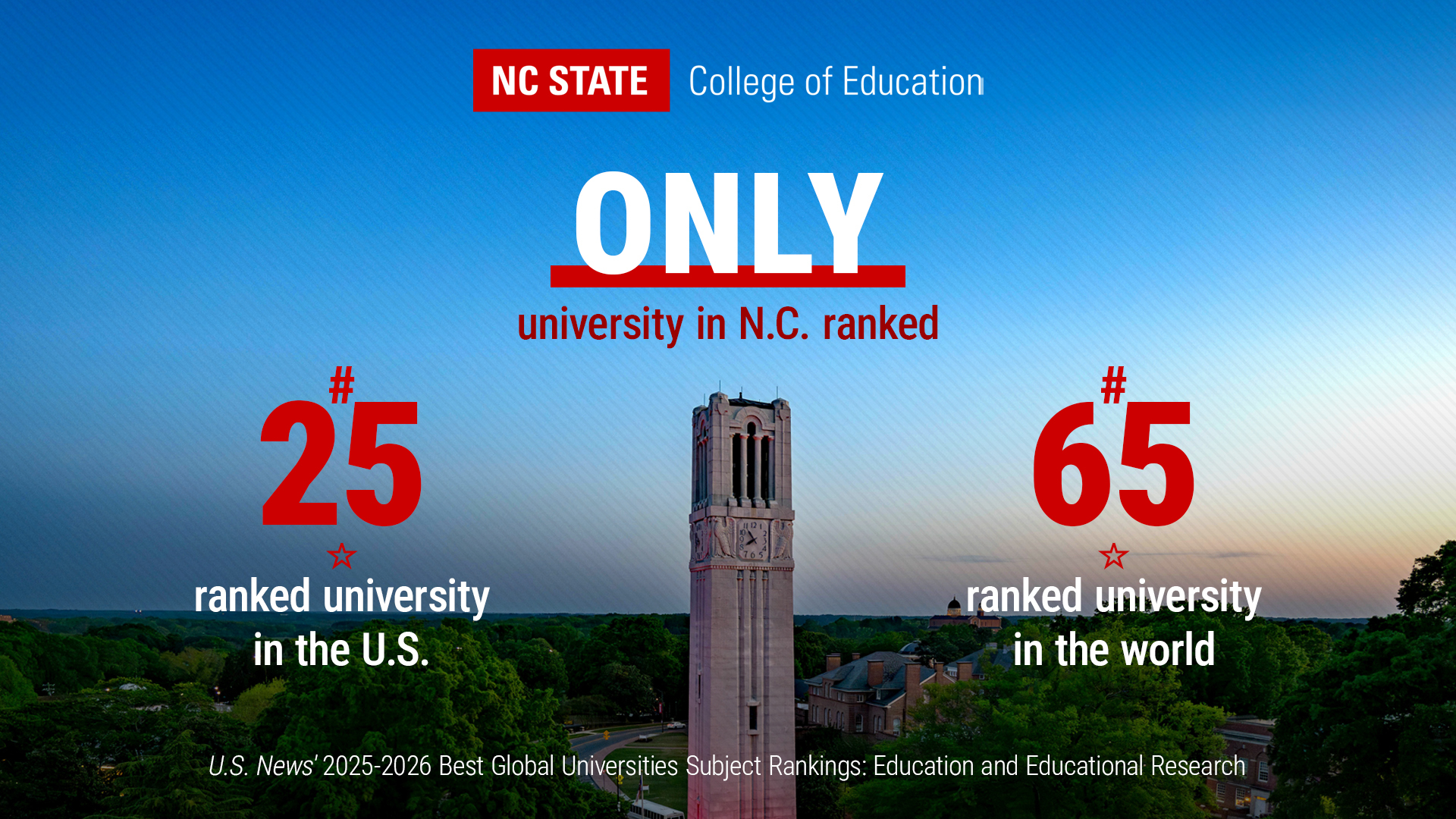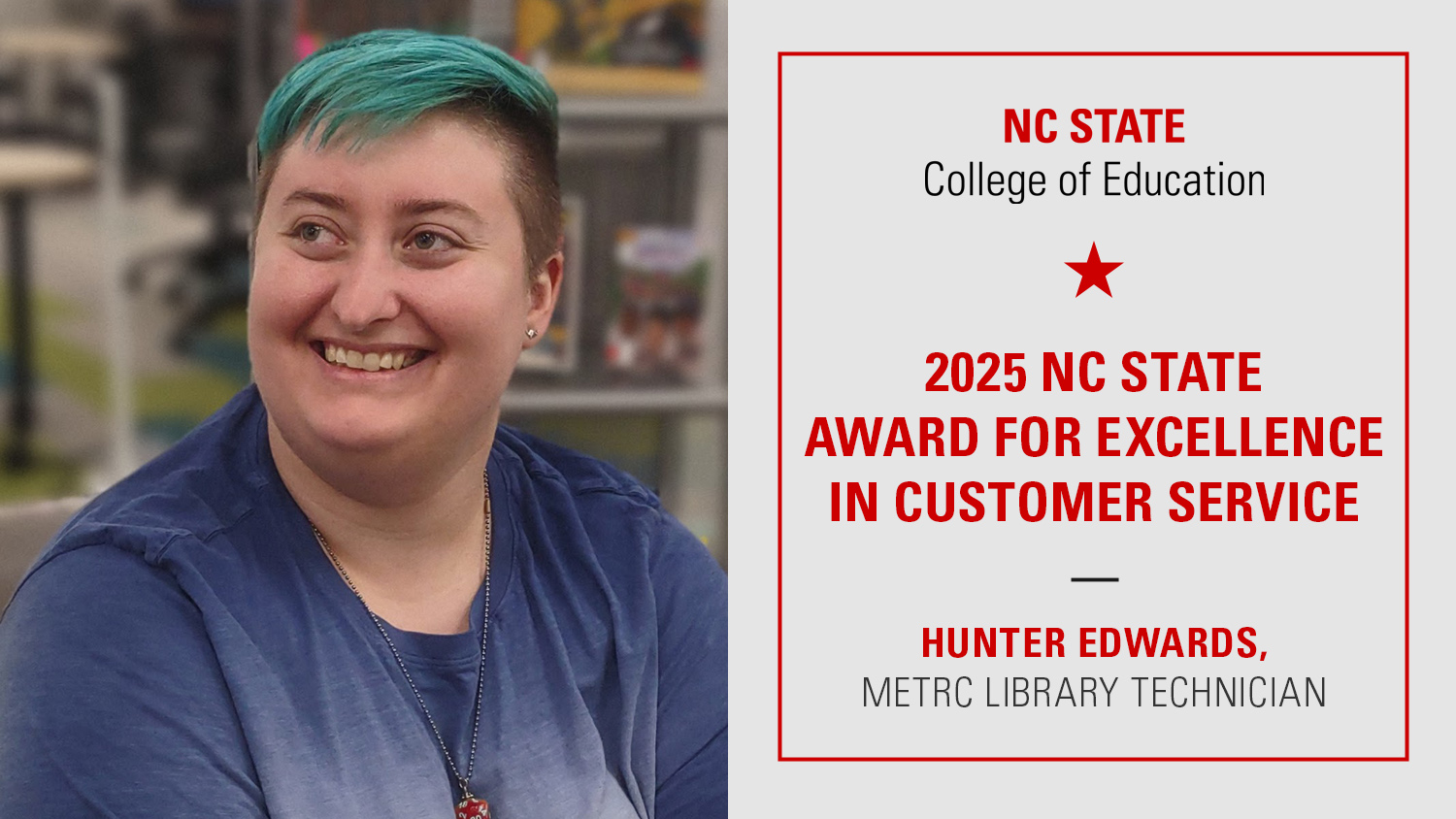Carrie Jones ’09PHD Recognized as 2024 American Association of Chemistry Teachers’ Teacher of the Year

Dillard Drive Magnet Middle School science teacher Carrie Jones ’09PHD encourages her students to discover STEM through the activities they already engage in as part of their everyday lives. That’s why she facilitates the school’s Kitchen Chemistry and STEM Jewelry clubs, where middle schoolers have the freedom to be creative and make discoveries through the process of trial and error.
“When mistakes are made, either we, one, go with it and make something new, two, try to salvage or disguise it or three, learn from it and start over,’ Jones said. “Any of these routes promotes a growth mindset.”
Jones has been instilling this mindset in her students for the past 25 years, 24 of which have taken place within the Wake County Public School System. This summer, in recognition of her success in the classroom, she was named a 2024 American Association of Chemistry Teachers (AACT) Teacher of the Year.
“I was surprised because I was just doing what I love — teaching in innovative ways that engage students,” said Jones, who earned her Ph.D. in the NC State College of Education’s Learning and Teaching in STEM: Science Education concentration. “One of the most important things we can teach students today is how to innovate. We don’t know what the world holds 10, 20, 30 years down the line, but in preparing students for future problems, they must be able to think outside the box.”
Jones’ approach to the field of education is characterized by her outside-of-the-box thinking. Not only was it her idea to launch a number of innovative STEM clubs for students, but she also sought out grants to enhance their experiences.
For example, the aspiring food scientists in her Kitchen Chemistry Club are supported by a $3,000 Bright Ideas grant and $2,000 from the Burroughs-Wellcome Fund, while the students in the STEM Jewelry Club use chainmaille and bead stitching supplies provided by a $1,000 grant from the Cary Woman’s Club. This upcoming year, Jones is also using a $10,000 4C Fund Grant to teach math through biodiversity and art as part of an Animal Science Club.
Whenever Jones applies for a grant that creates a new learning opportunity for her students, she thinks back on something her dissertation advisor, the late John Park, told her while she was a doctoral student in the NC State College of Education.
“The best advice he gave me was that even if your dissertation results were ‘not significant,’ learning still occurs. In other words, even though the outcome of a variable might be neutral or appear a failure, we still learn something,” Jones said. “In some ways, grant writing is like this. I won’t win every grant I write, but I can always get better at it and grow from it. We can’t be afraid to try.”
- Categories:


